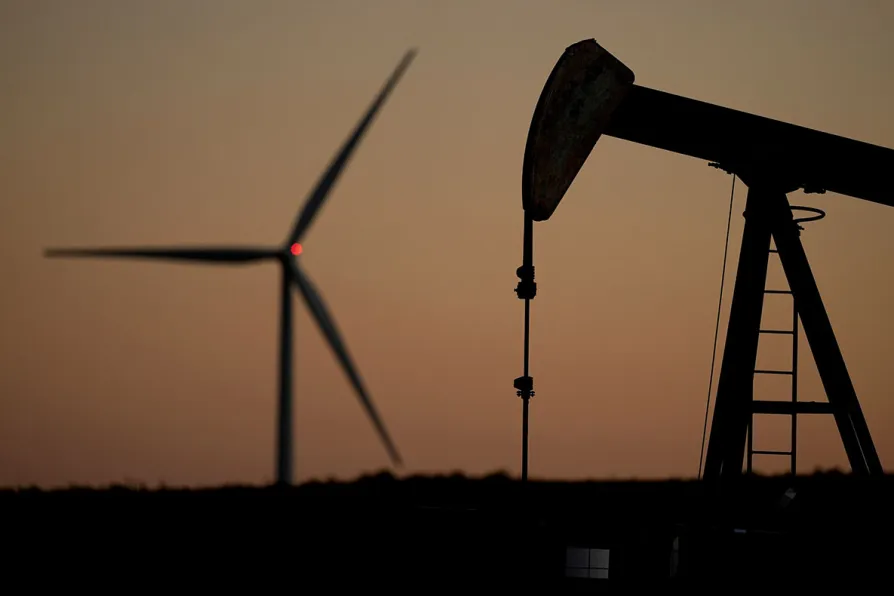
 A pumpjack operates in the foreground while a wind turbine at the Buckeye Wind Energy wind farm rises in the distance, September 30, 2024, near Hays, Kansas, US
A pumpjack operates in the foreground while a wind turbine at the Buckeye Wind Energy wind farm rises in the distance, September 30, 2024, near Hays, Kansas, US
THE United Nations climate negotiations got under way today in the Brazilian city of Belem, known as the gateway to the Amazon River.
The negotiations follow the leaders’ summit which was held last Friday where leaders pushed for greater urgency and co-operation in the fight to curb global warming by drastically reducing the carbon pollution that causes it.
Andre Correa do Lago, president of this year’s Cop30, emphasised that negotiators engage in “mutirao,” a Brazilian word derived from an indigenous word that refers to a group uniting to work on a shared task.
“Either we decide to change by choice, together, or we will be imposed change by tragedy,” do Lago wrote in his letter to negotiators Sunday. “We can change. But we must do it together.”
Complicating the calls for togetherness is the United States. The Trump administration did not send high-level negotiators to the talks and is withdrawing for the second time from the 10-year-old Paris Agreement.
The US has put more heat-trapping carbon dioxide into the air from the burning of coal, oil and natural gas than any other country.
Palau Ambassador Ilana Seid, who chairs the Alliance of Small Island States, who suffer some of the worst effects of climate change because rising seas swallow land, said: “The US withdrawing from the Paris Agreement has really shifted the gravity of the whole negotiating system.”
In a letter to negotiators released late on Sunday, Simon Stiell, the UN climate chief, claimed the 10-year-old Paris Agreement is working to a degree, “but we must accelerate in the Amazon.
“Devastating climate damages are happening already, from Hurricane Melissa hitting the Caribbean, Super Typhoons smashing Vietnam and the Philippines, to a tornado ripping through Southern Brazil.”
Not only must nations do more faster but they “must connect climate action to people’s real lives,” Stiell wrote.










